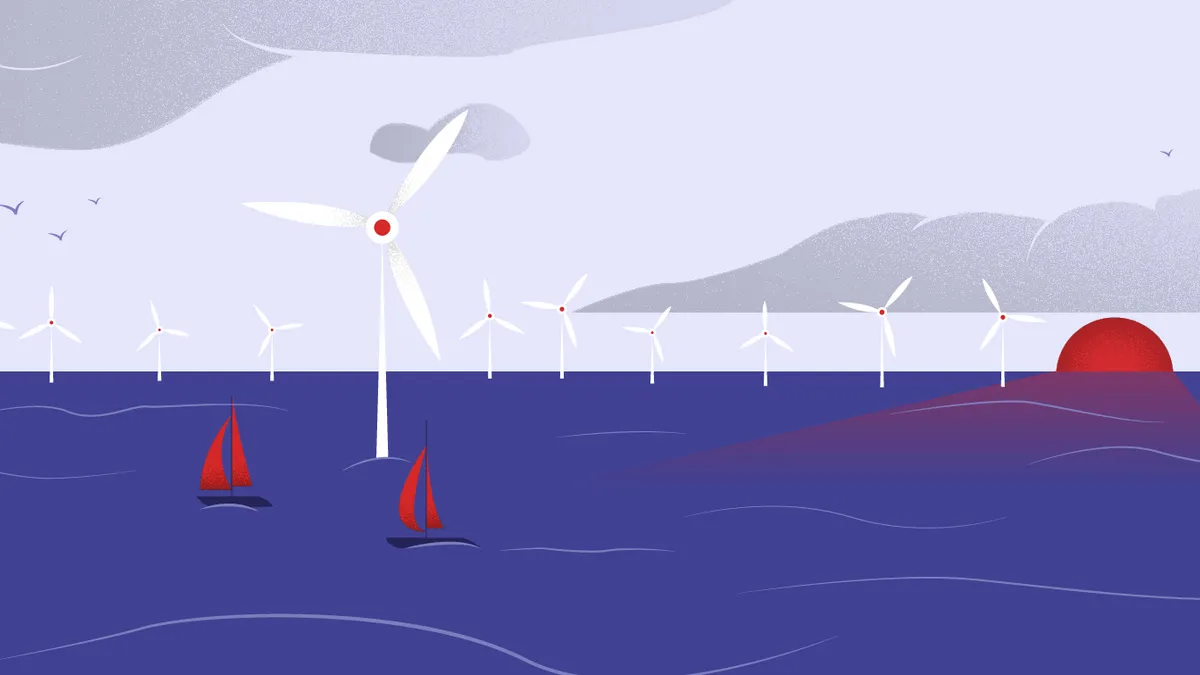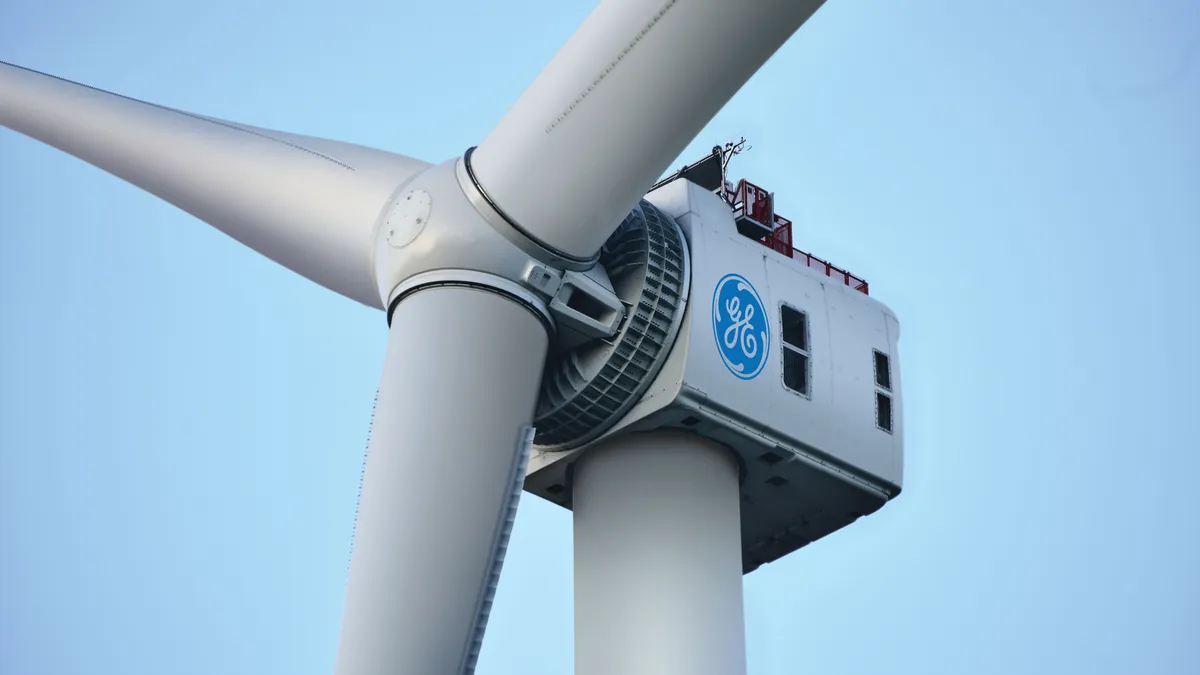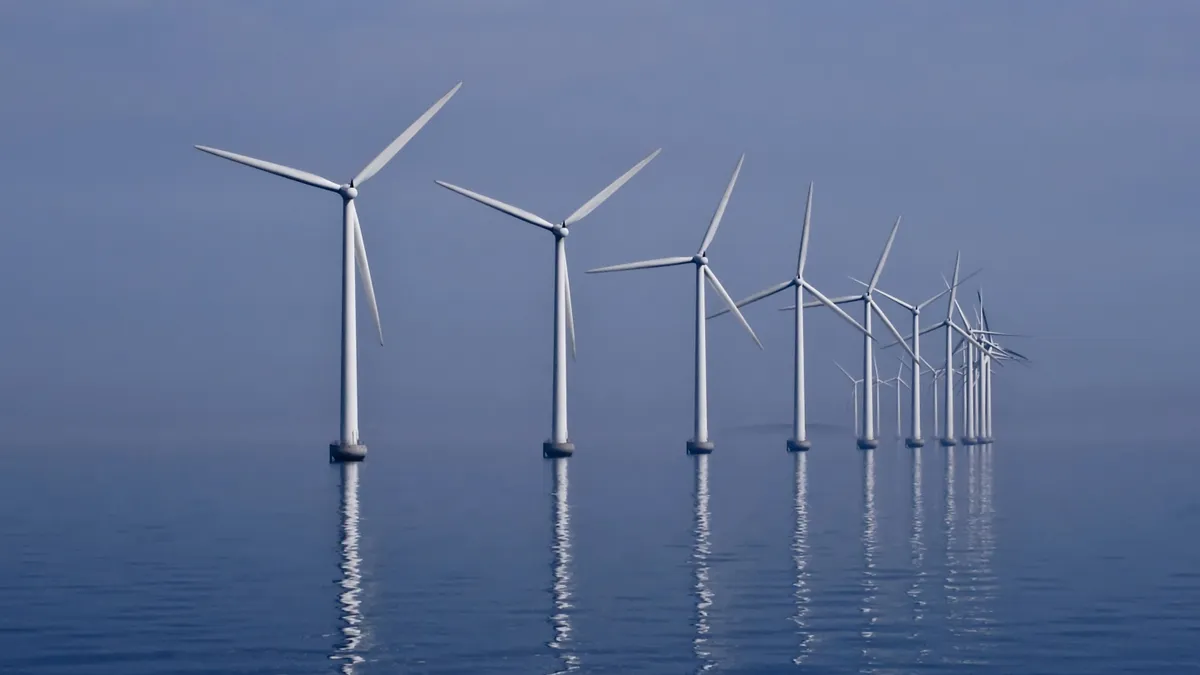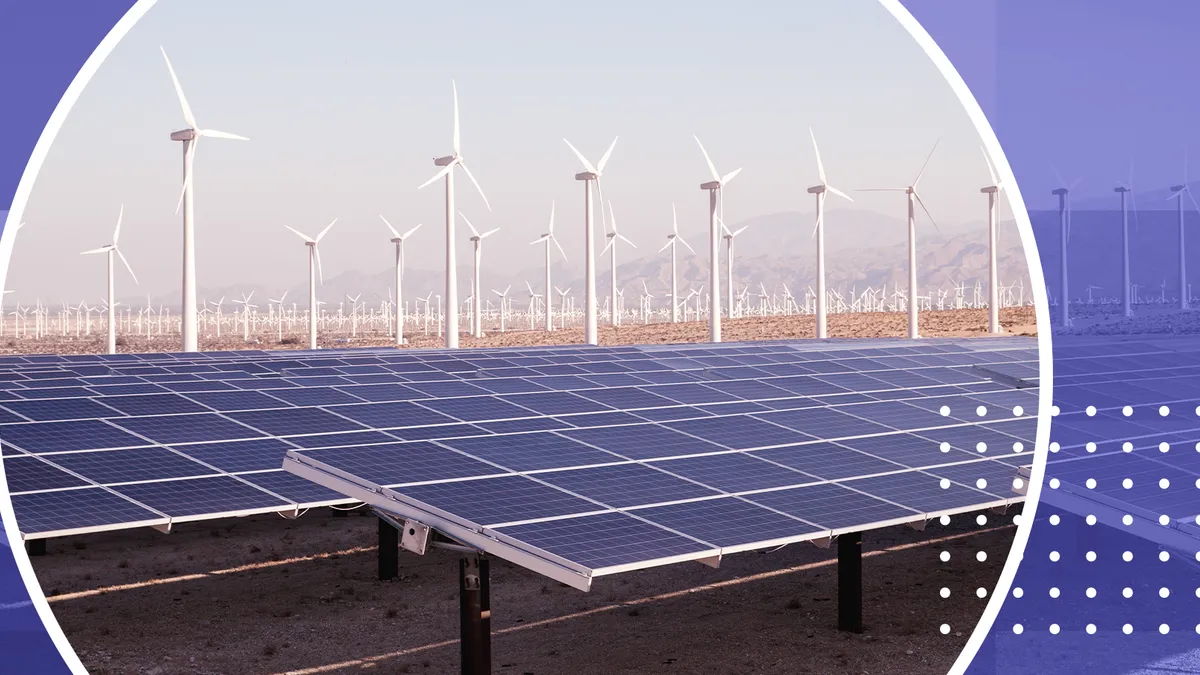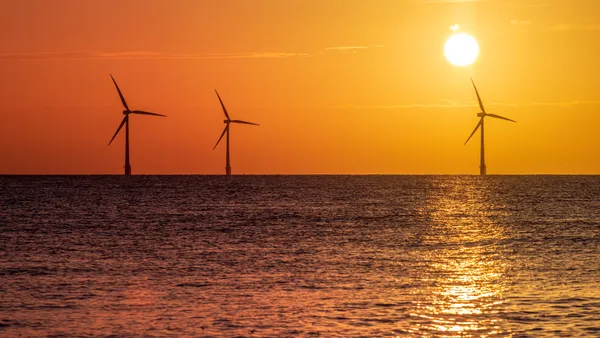Dive Brief:
-
The U.S. Department of the Interior issued a Record of Decision on Tuesday granting final approval for Vineyard Wind to move ahead with an 800 MW offshore wind installation off the coast of Massachusetts, marking the first approval of a commercial-scale offshore wind farm in the U.S.
-
Vineyard Wind has also entered into a labor agreement with Massachusetts Building Trades unions to ensure the 3,600 jobs created by the project provide middle-class wages and benefits, according to Frank Callahan, president of the Massachusetts Building Trades Council.
-
After closing financing on the project in the second half of 2021, construction of on-shore components will begin immediately, according to Vineyard Wind CEO Lars Pedersen. Vineyard Wind expects to begin installing offshore turbines in 2023.
Dive Insight:
After years of permitting delays, officials say the approval of Vineyard Wind 1 is a milestone for the arrival of offshore wind in the U.S., clearing the way for new renewable energy projects and signaling political and industry support for an economically just energy transition.
More than any earlier milestone, the Biden administration's decision today marks the arrival of the offshore wind industry in America," Mayor Jon Mitchell of New Bedford, Massachusetts, said in a statement. "As the country's first industrial-scale offshore wind farm, the Vineyard Wind project is at the head of a line of projects that together will be a pillar of America's clean energy future."
Vineyard submitted an application with the Interior's Bureau of Ocean Energy Management on December, 2017, according to Pedersen. Although they were supposed to receive a decision within two years, Pedersen said an unexpected increase in the number of offshore wind applications triggered a need for additional reviews, delaying a Record of Decision on the Vineyard project.
"It's been a long road. We are at the end of one phase … and now looking forward to moving into the phase where we can actually start building the first large-scale offshore wind in the U.S.," Pedersen said. "It's a very good day for us."
Pedersen said Vineyard will spend the next several months finalizing financing deals for the project before it can move ahead with construction. Pedersen declined to speak publicly about the cost of the project.
At a separate press conference, federal officials announced the Record of Decision and touted the project's potential job benefits in light of a labor agreement signed signed earlier this week.
Vineyard Wind and the 3,600 jobs it will create is a step toward the Biden administration's goal of deploying 30 GW of offshore wind by 2030, said Gina Raimondo, U.S. Secretary of Commerce. Raimondo estimated that the national offshore wind goal will create a total of 80,000 new U.S. jobs.
"The Vineyard Wind project will create high-paying, high-skill union jobs for American workers," Raimondo said, calling a belief that what is good for the environment is bad for the economy an "old fashioned way of thinking."
As the first large-scale offshore wind project in the U.S., Pedersen said Vineyard will have to acquire most specialized components for the project overseas. However, he said he was surprised by the amount of components and labor Vineyard will be able to source from the U.S.
"I think the suppliers are looking to onboard and become part of an American supply chain really fast, because it allows them to be competitive in this market," he said.
He said further details on the breakdown of where labor and materials will be sourced would become available in the coming days.
Both Pedersen and Raimondo also spoke of the need to collaborate with fishing industry interests. Raimondo said the Record of Decision will require Vineyard to separate each offshore turbine by at least one nautical mile to safeguard navigation around the project, and Pedersen spoke of setting aside roughly $16 million in both Rhode Island and Massachusetts for mitigation in case of impacts to the fishing industry.
However, the Responsible Offshore Development Alliance, a fishing industry coalition, condemned the Record of Decision "in the strongest possible terms" within hours of the Interior Department announcement.
"For the past decade, fishermen have participated in offshore wind meetings whenever they were asked and produced reasonable requests only to be met with silence," Anne Hawkins, executive director of RODA, said in a statement. "From this silence now emerges unilateral action and a clear indication that those in authority care more about multinational businesses and energy politics than our environment, domestic food sources, or U.S. citizens."


